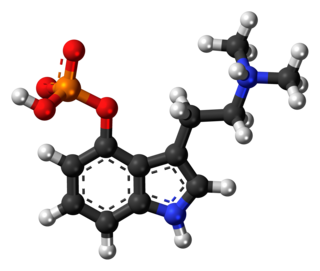Psychedelic-Assisted Therapy
Psilocybin: Four Important Takeaways from a Clinical Trial
New research shows promise for the safety of psilocybin in controlled settings.
Posted December 14, 2019 Reviewed by Kaja Perina
A new clinical trial shows no serious adverse effects related to administering regulated doses of psilocybin in a controlled setting with one-on-one support from a specially trained therapist. This pioneering research was conducted by the Institute of Psychiatry, Psychology and Neuroscience at King's College London.
The preliminary results of this phase I study were presented on Dec. 11, 2019, at the 58th annual meeting of the American College of Neuropsychopharmacology (ACNP).
The main objective of this study was to test the safety and therapeutic feasibility of administering specific doses (10 or 25 milligrams) of psilocybin in a controlled setting with a well-trained therapist guiding each one-on-one session.
As expected, psilocybin at these 10 or 25 mg doses induced some transient psychedelic experiences.
What Is Psilocybin?

Psilocybin is a psychedelic drug with hallucinogenic properties that was first isolated from the psilocybe strain of mushrooms in 1957. Colloquially, psilocybin is often called "magic mushrooms" or "'shrooms." Psilocybin truffles are a lesser known "magic" fungi that contain very similar psychoactive substances as psychedelic mushrooms.
During the 1960s, psilocybin was tested in various psychiatric studies and used in "psychodynamic oriented psychotherapy" prior to being labeled a Schedule 1 Substance by the United States Drug Enforcement Agency (DEA) in 1970. When psilocybin and other psychedelic drugs (e.g., LSD. peyote) became illegal, clinical research on hallucinogens came to a grinding halt.
Last year, for the first time in American history, the federal government fast-tracked research into using a psychedelic drug (psilocybin) to treat depression. In October 2018, the FDA granted COMPASS Pathways a "Breakthrough Therapy Designation" to conduct clinical trials exploring the safety and efficacy of using various doses of psilocybin to treat TRD.
COMPASS Pathways is a UK-based life science company founded in 2016 with the mission of accelerating patient access to evidence-based innovations that improve mental health. Their first major initiative is to develop psilocybin therapies for treatment-resistant depression (TRD).
Psilocybin is now in clinical development for treatment-resistant depression in Canada, Europe, and the United States.
A November 2018 Rolling Stone article by Shelby Hartman reported on COMPASS Pathways' fast-track designation and speculates that "psilocybin could be legal for therapy by 2021."
The article also highlights the importance of moving forward with discretion. Hartman writes: "For the last decade or so, psychedelic pioneers have trodden lightly, concerned that at any moment they might once again lose the freedom to conduct their life's work. But now, it appears they've come too far to go back — and the federal government is finally recognizing it, too."
Depression is a debilitating global epidemic. Over 16 million Americans suffer from clinical depression and approximately one-third of these people are "treatment-resistant." (Ionescu et al., 2016) Globally, the World Health Organization (WHO) estimates that roughly 322 million people (4.4 percent of the world's population) suffer from major depressive disorder (MDD). Depression is the leading cause of disability in the world.
How Was the Recent Phase I Clinical Trial on the Safety of Psilocybin Conducted?
The latest psilocybin clinical trial (2019) was originally designed for 90 participants; one person did not complete the study. The 89 healthy adults who finished the study were assessed for twelve weeks.
The first part of this study included baseline assessments of emotional processing and cognitive function. Then, everyone participated in a two-hour preparatory group session with lead therapists, the study psychiatrist, and chaperones.
On another day, psilocybin (or placebo) was orally administered in a dose of 10 mg of 25 mg in a controlled setting. Each one-on-one session lasted about six hours and was led by a trained therapist — the study psychiatrist and a chaperone were also on hand during these sessions.
After the acute effects of the psilocybin subsided, participants were sent home. The following morning, they returned to the clinic for safety assessments and a discussion with study therapists about the subjective experience during the previous day's session.
Throughout the course of this study, 46 therapists also received additional experiential training in preparation for subsequent phase II clinical trials.
Of note: the psilocybin used in the ongoing King's College clinical trials is not administered in the form of a magic mushroom or psychedelic truffles. Instead, the 10 mg and 25 mg dosage of psilocybin used in these clinical studies is manufactured by COMPASS Pathways under their in-house psilocybin name "COMP360.” (A hallucinogenic dose of 1-5 grams of dried mushrooms equals roughly 10 -50 mg of pure psilocybin.)
Four Key Takeaways on the Safety of Psilocybin Administered to Healthy Adults in a Controlled Setting with Therapist Support:
- No serious adverse events from psilocybin doses of 10 mg or 25 mg were reported.
- Psilocybin doses of 10 mg and 25 mg didn't have negative effects on cognitive and emotional functioning.
- The majority of adverse events seen with the 10 mg and 25 mg doses were of the expected psychedelic nature; the most frequent were changes in sensory perception and mood alteration.
- This Phase I study demonstrates the feasibility of administering psilocybin in a controlled setting to healthy participants with one-on-one therapist support.
James Rucker was the lead investigator of this study. Rucker is a consultant psychiatrist and senior clinical lecturer in psychopharmacology at King's College London's Institute of Psychiatry, Psychology and Neuroscience.
In a news release, Rucker summed up the significance of this phase I clinical trial: "This is the largest controlled study of psilocybin to date. The results of the study are clinically reassuring and support further development of psilocybin as a treatment for patients with mental health problems that haven't improved with conventional therapy, such as treatment-resistant depression."
Related Posts:




